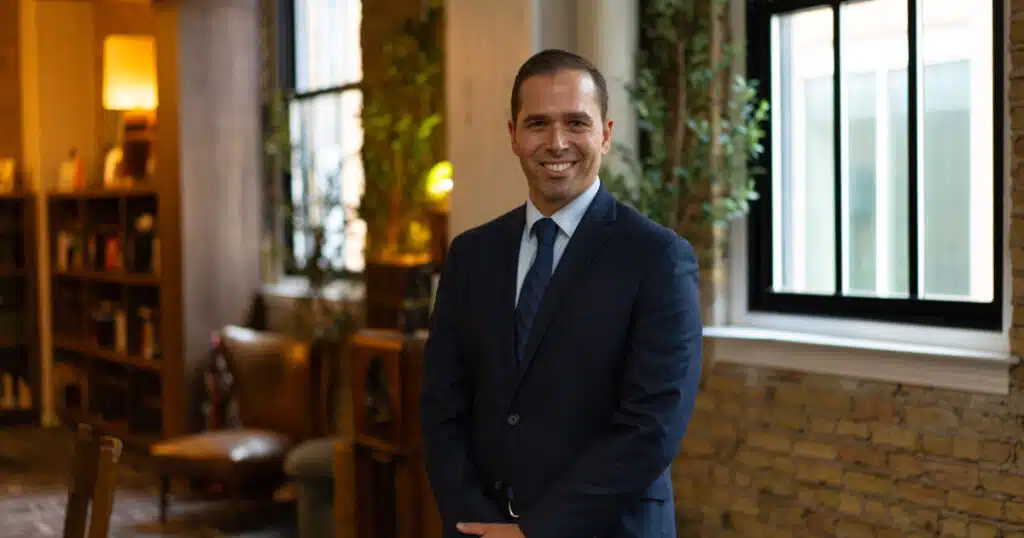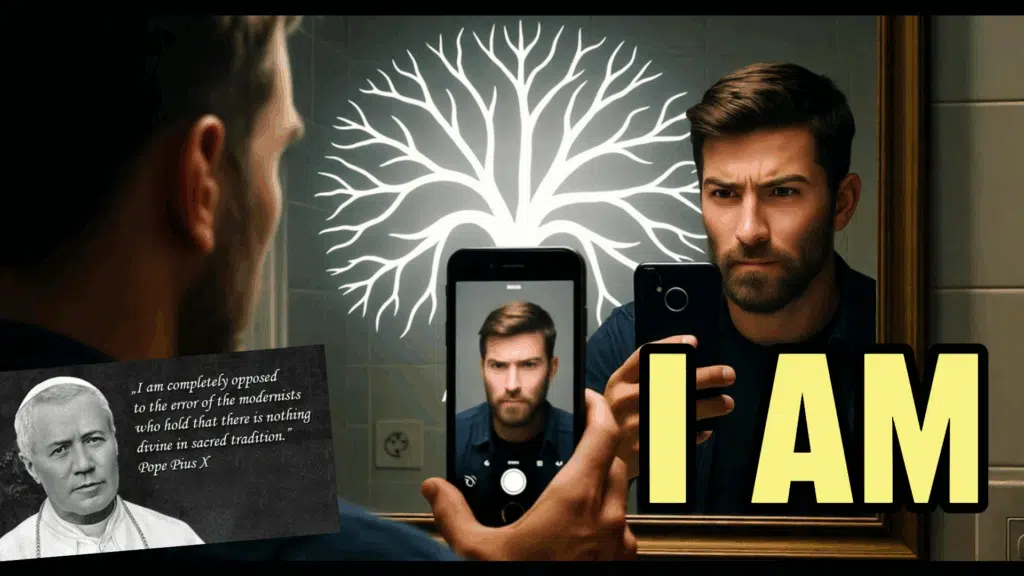
In ‘Weird’ Austin, a Double Shot of Academic Counter-Revolution
AUSTIN, Texas — Lacking three crucial components – students, faculty, and facilities – the two educational experiments proposed in this state capital sounded like moonshots just a few years ago.
Today, the School of Civic Leadership at the University of Texas and a feisty startup calling itself the University of Austin are not just up and running, but helping lead the movement to revive classical liberal education across the country.
Now in their second semesters, the two unrelated schools – one public, one private – offer a mix of courses emphasizing political theory, economics, philosophy, and canonical texts that appeal to big-time donors eager to fund traditional academic subjects that have fallen into neglect, or even disdain, in the ivory tower. A big part of their strategy relies on a naked grab for the academic market share by being perceived as more relevant, more exciting, and more consequential.
“We’re a throwback to an older model that sees serious engagement with the great debates of the Western tradition as the best possible preparation for leadership,” said Antonio Sosa, a professor at UT-Austin’s School of Civic Leadership. “We’re not interested in deconstructing America’s founding and the West; we’re not focused on race and gender.”
The reform efforts underway in Austin are now approaching a major milestone: the end of their first academic year, with further expansion around the corner. Commonly known by their acronyms, SCL will be launching a Civics Honors major with about 100 students this coming fall, while UATX will be adding a second freshman cohort of about 100 students as the current batch advances to its second year.
Both are part of a national academic civics movement to create viable alternatives to higher ed trends that their backers deem intellectually bankrupt and moral dead ends: the penchant for DEI and social justice activism, training students in narrow careerism or “jobism,” and incentivizing the faculty fetish for fads and hyper-specialization.
Over the past quarter-century, more than 100 academic civics initiatives have arisen, emphasizing such themes as the Great Books, the Western canon, free markets, and individual liberty. In the latest incarnation of this trend, the University of Austin is comparable, at least superficially, to niche, independent colleges like Hillsdale, Ralston, St. John’s (Maryland), and Deep Springs that emphasize intellectual foundations and distinctive academic cultures. UATX’s board of advisers is a who’s who of public intellectuals, most of whom require no introductions in academic circles: Richard Dawkins, Jonathan Haidt, Robert George, Glenn Loury, Harvey Mansfield, Deirdre McCloskey, Nadine Strossen, Larry Summers, Andrew Young, among others.
UT-Austin’s program is part of a new wave backed by conservative donors, trustees, and lawmakers that includes 13 autonomous civics schools established at eight public universities – including five in Ohio – that have their own deans, their own majors, and, in some cases, their own Ph.D. programs. The School of Civic Leadership includes its own think tank, The Civitas Institute, which is modeled on Stanford’s Hoover Institution; its roster of fellows includes John Yoo, a lawyer who served in the George W. Bush administration; Jenna Silver Storey, an American Enterprise Institute fellow who specializes in the civics movement; Arthur C. Brooks, former AEI president and Harvard scholar of leadership and happiness; and Vincent Phillip Muñoz, a University of Notre Dame legal scholar and well-known constitutional originalist.
UATX President Pano Kanelos, who compares the creation of the University of Austin to Plato’s founding of the Academy in Athens in 387 BC, predicts that “we’re growing a university that’ll be around for centuries.” But observers note that these and other civic education reform efforts are some years away from achieving the movement’s ultimate goal: producing a permanent infrastructure with a pipeline of scholars to lead and populate similar programs across the country. In the coming years, they must deliver on their long-term promises to their backers that they can attract competitive students, produce consequential scholarship, place graduates in solid careers, and grow their programs into lasting institutions.
It’s no coincidence that both are located in Austin, a vibrant college town and state capital known for its music festivals, its Silicon Hills tech hub, and its countercultural motto: Keep Austin Weird. The Austin-American Statesman newspaper describes the city’s famed South By Southwest Festival (a.k.a. SXSW) as “a giant, caffeine-and-booze-fueled playground for creatives.”
With conservative intellectuals creating their own anti-establishment ethos, Austin has also become home to the global headquarters of Elon Musk’s EV venture, Tesla, and the home of the dissident political podcast, The Joe Rogan Experience. In a nod to these counter-cultural landmarks, an earlier iteration of UATX’s FAQs page used to proclaim: “If it’s good enough for Elon Musk and Joe Rogan, it’s good enough for us.”
Nevertheless, both schools are still in their infancy. The University of Austin, for example, is now housed in a repurposed department store in downtown Austin that looks like a hip, Gen Z shared workspace. To attract top students, it’s covering all tuition costs for the teenagers who are taking the risk of attending a startup that lacks accreditation, a complicated review process that could take longer than expected. Likewise, at the University of Texas, School of Civic Leadership Dean Justin Dyer said that a common question that arises in faculty searches is “whether our funding is secure and whether this is a viable long-term project.”
Even as they grapple with challenges common to start-ups, the two programs continue to face skepticism from the entrenched academic interests they are seeking to reform. The common refrain is that they function as conservative safe spaces and cheerleaders for Western Civilization, out of touch with contemporary scholarship. And yet, for the most part, the educational reforms underway in Austin have avoided major public controversy, and their early success is evident in their confidence that they represent the future of higher education.
“We are a self-conscious rebel faction that’s offering a new university on the model of the old,” said Morgan Marietta, UATX’s dean of economics, politics, and history. “Our movement is: We’re going to take their students, we’re going to take their faculty, we’re going to take their money – that’s how we’re going to win.”
A recent visit to Austin offered a glimpse of how these two programs are alike, how they differ, and what they look like in practice. The University of Austin leadership is brash and provocative, and tends to hire public intellectuals active on the podcast circuit and in other journalistic outlets. Within weeks of launching in 2021, two high-profile advisers – Harvard professor Steven Pinker and then-University of Chicago chancellor Robert Zimmer – resigned from the advisory board, with Zimmer stating that he could not abide by the startup university’s exaggerated statements about the incorrigibility of academia. UATX does not offer tenure to its faculty, but instead hires on five-year renewable contracts.
As a public entity, UT’s School of Civic Leadership is more traditional, hiring tenure-track faculty and evoking the marble-and-mahogany solemnity of a present indebted to the past. Many of SCL’s classes are offered in the school’s current headquarters, the Victorian-era Littlefield House, appointed with wood-paneled walls, antique furniture, and regal paintings of Texas grandees.
The students in the maiden class are essentially ambassadors for these programs, and tend to speak in that mode.
“I think every student should take at least one civics class because the ideas are so expansive, so inspiring, and thought-provoking,” said Debbie Chu, a sophomore and a government major currently taking Professor Sosa’s “Perennial Problems in Civic Thought” class.
Both of these programs are in their infancy, and they are still undecided on where their permanent facilities will be located. UATX might at some point create an open campus away from the downtown office it now occupies, and has enlisted famed architect Léon Krier to draw up a master plan, Kanelos said. It has raised over $200 million from more than 3,000 donors, including real estate developer Harlan Crow, notable friend of Justice Clarence Thomas; hedge fund titan Bill Ackman; and billionaire trader Jeff Yass, who has given $35 million, the single biggest gift to date to UATX. The donations and pledges so far can fund UATX’s operations until at least 2030, Kanelos said, by which time the new college expects to have accreditation, which will be retroactive to all graduates, and will be charging tuition.
UT’s School of Civic Leadership was initially funded with $6 million from the Texas state legislature and Board of Regents, and the Regents are tentatively looking at adding $5 million more for a total of $11 million, said Dyer, SCL’s dean. The school now has 14 tenure-line faculty members, approaching its Board of Regents mandate of hiring 20 faculty within three years. SCL has also netted $20 million in donations and pledges from the likes of Crow and Robert Rowling, a hotel magnate ranked 126 on Forbes’ 400 richest Americans.
Getting to this point could be considered a minor miracle, but such accelerated development hasn’t come without growth pains.
A finance professor at UT-Austin who had planned to start a conservative “Liberty Institute” has accused the university administration of hijacking the idea, diluting it, and threatening him with retaliation for public criticism. The professor, Richard Lowery, has aired his allegations in conservative outlets, The National Review and the James Martin Center for Academic Renewal. Lowery’s lawsuit against UT was dismissed by a federal judge and is now pending on appeal.
Last September, UT-Austin’s Faculty Council approved SCL’s Civics Honors major by a razor-thin vote of 23 to 21. According to the description of the course of the study, the curriculum will be tailored to “high-performing students” who “will study the wisdom of the past not in order to become antiquarians but in order to subject the conventional orthodoxies of the present to rational critique.” To anyone in academia, “conventional orthodoxies” has unambiguous overtones: wokeness, DEI, and social justice advocacy.
According to a transcript of the meeting, a number of professors voiced their opposition.
“I think it’s important for us to, as the Faculty Council, take note and perhaps a stand on the political origin of this discipline imposed upon the University by the legislature,” said astronomy professor Paul Shapiro. “When does the legislature get to tell us we need to teach something we’re not teaching? And I think that is the question we should be asking. How is this free of that political origin?”
Mathematics professor Lorenzo Sadun, who served on the committee that hired Dyer as SCL Dean, told the Faculty Council that the hiring committee members were initially very skeptical, but “the more we talked with our top candidates, one of whom became our Dean, the more we were really impressed” with the project.
In an email to RealClearInvestigations, Sadun said the School of Civic Leadership is unquestionably a political project, but one that can be justified on the merits.
“The impetus for creating the school was overtly and unambiguously political, with a lot of pressure from outside the University,” Sadun explained. “I hated the idea, as did most of the faculty.”
“However, the people charged with creating it saw an opportunity to make lemonade out of lemons,” Sadun continued. “To make a place where conservative thought can thrive, but in dialogue with liberal thought, not in isolation. That sort of dialogue is what universities are for, regardless of how much I may personally disagree with the SCL leaders’ political ideas.”
Civics advocates describe their schools and curricula as nonpartisan and apolitical, but at the same time, anchored in the vision of America’s founding principles that were erected upon the foundation of Western Civilization.
UATX President Kanelos was formerly the president of St. John’s College, a small liberal arts institution in Annapolis, Maryland, emphasizing a Great Books curriculum. He said that University of Austin students read more than 20,000 pages in their first two years, which constitute UATX’s Intellectual Foundations curriculum, where all the students take the same core classes in the same order.
A Mix of Old and New
Dyer comes from a different background. In a 2017 article, he described himself as “a conservative, straight out of central casting, a pro-life evangelical who is an unapologetic admirer of the American Founding Fathers and the U.S. Constitution.” In his 2013 book, “Abortion, Slavery, and Constitutional Meaning,” published by Cambridge University Press, Dyer argues that abortion is legally analogous to slavery, in that certain classes of humanity are deprived of legal status and legal protections.
The course selections at both programs, more than two dozen in all, offer a mix of old and new. This semester, UATX is offering “Bitcoin, Blockchain, and Cryptocurrency” and “Artificial Intelligence II” alongside “Crown, Cathedral, and Crusade” and “Machiavelli, Discourses on Livy.”
About two miles away, UT-Austin’s School of Civic Leadership is offering multiple units of “Intro to Philosophy, Politics, and Economics” and “Constitutional Principles: Core Texts” alongside “Democracy and Capitalism” and “The Age of Reformation.”
An RCI reporter’s visit to three SCL classes revealed courses taught by a combination of lecture and discussion, with a heavy reading load. SCL’s syllabi for the classes being taught this semester show that the readings hew to the classical liberal model of exposing students to primary sources and historical debates about slavery, due process, libel, abortion, and other controversies.
Introduction to Philosophy, Politics, and Economics readings include Karl Marx, Friedrich Engels, Adam Smith, Thomas Sowell, John Rawls, Friedrich Hayek, John Jacques Rousseau, Kurt Vonnegut, among a host of others. The Democracy and Capitalism class likewise includes reading selections and podcast episodes representing a variety of perspectives – Milton Friedman’s “Capitalism and Freedom,” Robert Heilbroner’s “Socialism,” Friedrich Hayek’s “The Road to Serfdom,” Irving Kristol’s “On Corporate Capitalism in America,” George Stigler’s “Monopoly,” those being just a sample.
Dyer is teaching a course called Constitutional Rights that is heavy on U.S. Supreme Court rulings and dissents. Dyer’s syllabus contains a two-word clue – “close reading” – to the way historical texts are interpreted in the civics culture, a phrase that also appears on other SCL syllabi. The phrase means much more than simply careful reading or attention to detail. The words contain an entire philosophy governing the relationship between a reader and a text, which is based on the belief that texts contain objective meanings, and that the student’s job is to attempt to comprehend that meaning. Once a mainstay of academia, that approach has fallen out of favor and is a radical departure from contemporary methods that dismiss traditional interpretations of classical texts as naïve or sycophantic, and say that today’s readers are heir to an evolved understanding of history that gives them the moral authority to stand in judgment of the past.
As Professor Sosa explained in an interview after his class, “We don’t study with the assumption that the students and faculty are better or smarter than the things they’re studying.”
Zach Lacy, a UT-Austin sophomore triple-majoring in government, philosophy, and classical languages, said he was not exposed to a single “great book” in high school, and the School of Civic Leadership is unlike any other education he has experienced.
“I really get to chew on the texts, read deeply and fully understand it,” he said. “There’s a sincerity in approaching the text and acknowledging there is wisdom that we do not have.”
This article was originally published by RealClearInvestigations and made available via RealClearWire.



